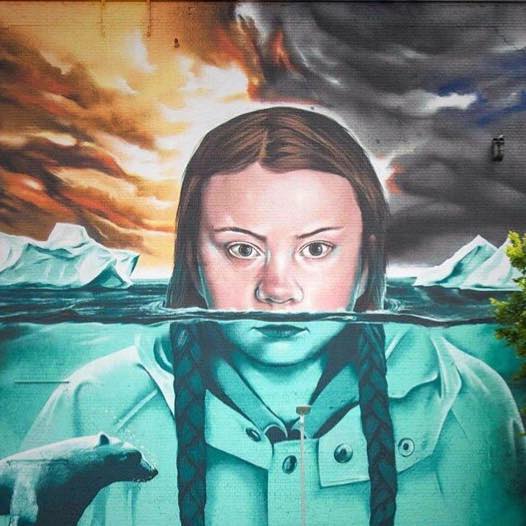Earlier this year the Welsh Government declared a climate emergency in Wales, a move supported by Learning Disability Wales. Ahead of this week’s Global Climate Strike, Grace Krause, policy officer for Learning Disability Wales, raises a major concern that goes largely unspoken in conversations around climate change – how the crisis is expected to have a disproportionate impact on disabled people.
This Friday, 20th September, there will be a Global Climate Strike, organised by young people and inspired by the young Swedish climate activist, Greta Thunburg.
The youth strike movement is calling for everyone – young and old – to stand in solidarity and mobilise alongside them for the Global Climate Strike and the fight against injustice. As stated by Greenpeace: “The Global Strikes will demand urgent and radical action from governments and corporations to solve the climate emergency we’re all facing.”
In the UK the strike has been organised by the UK Student Climate Network. The Network say that they have organised the strike because: “We are already facing devastating and irreversible impacts around the world. This is our final chance to fight for the future, and age will not stop us.”
In Wales there will be demonstrations in Aberystwyth, Cardiff, Conwy, Haverfordwest, Pontypridd, Swansea and Tywyn. You can find and join your nearest protest strike at the Global Climate Strike website.
Why climate change is a disability issue
The Climate Strike is important and urgent. It affects all of us. But it does not affect everyone equally. Where extreme weather events like storms, floods and heatwaves happen as a result of climate change survival chances are much worse for disabled people.
Common issues that we talk about in relation to the social model of disability, such as unequal access to environments and information, are expected to make the effects of climate change worse for disabled people than others. In response to this, the United Nations Human Rights Council announced a resolution earlier this year addressing for the first time the rights of people with disabilities in connection with climate change.
Including disabled people in climate activism
One central demand of the resolution is that disabled people should be included in all steps of the process. For people with a learning disability a large part of this should be producing clear and accessible information, and ensuring they are involved in these conversations.
We should also ensure that emergency services and disaster relief efforts take the needs of disabled people into account, while disabled people also need to be included in policies and campaigns that fight climate change.
While researching this article, it is alarming how little easy read information there is available online about climate change. Credit should be paid to United Response for regularly covering the issue in their excellent Easy News magazine, and there is a good easy read guide from Unity Dorset (opens as PDF) that includes some tips about some of the small changes we can make in our own lives.
A recent European project that Learning Disability Wales managed helped people with a learning disability across Europe to better understand their role in a global society, including the effects of climate change. The TIDE project (Towards Inclusive Development Education) (PDF) developed a training programme and a manifesto (opens as PDF) that explored key issues of justice, human rights and sustainable ways of living, with young people from Wales co-producing the workshops. You can download the manifesto here.
Minimising our impact on nature and stopping pollution will mean changing our way of life and it is important that those changes don’t affect disabled people more than others.
Meanwhile, changing the way we live to save our planet also offers opportunities to think about what kind of society we want to live in. This could mean, for example, a society in which there are fewer jobs in industry but more in social care, or one in which we consume fewer things but have more free time to spend as we please. Yes, these are idealistic views, but we need to think big if we are going to change for the better.
Whatever this world looks like, it should have accessibility and celebrating difference at its heart and the only way it will do that is if people with a learning disability and other disabled people are included every step of the way.
Grace Krause
Policy Officer, Learning Disability Wales
Follow me on Twitter at @Grace_LDW.




 >
>
 >
>
